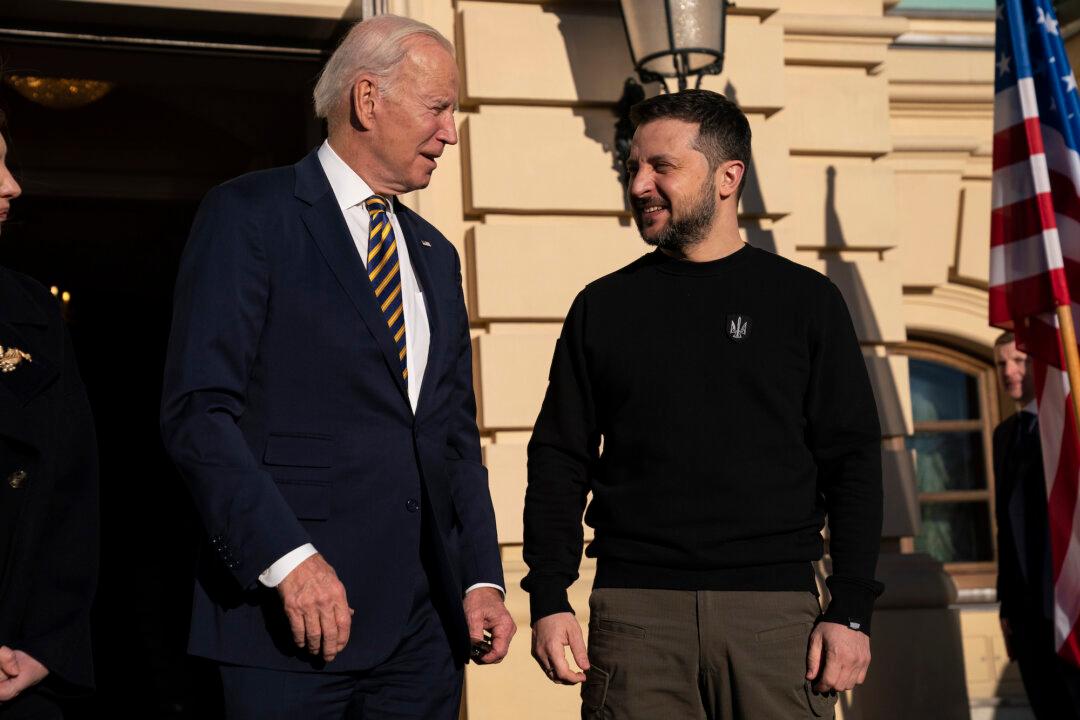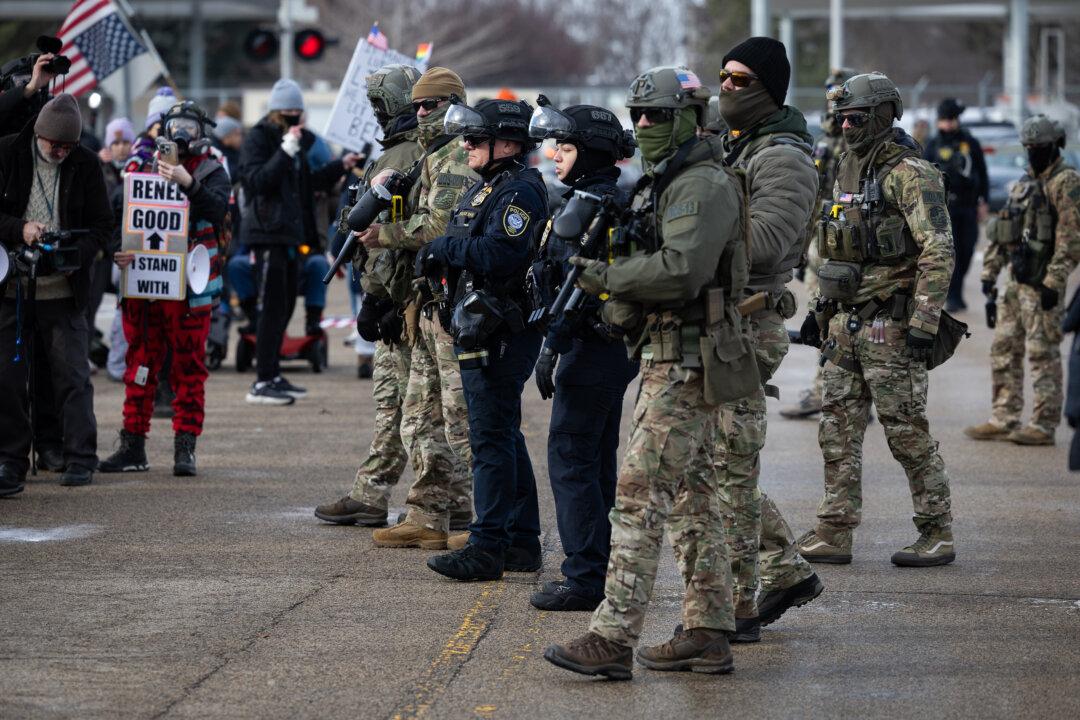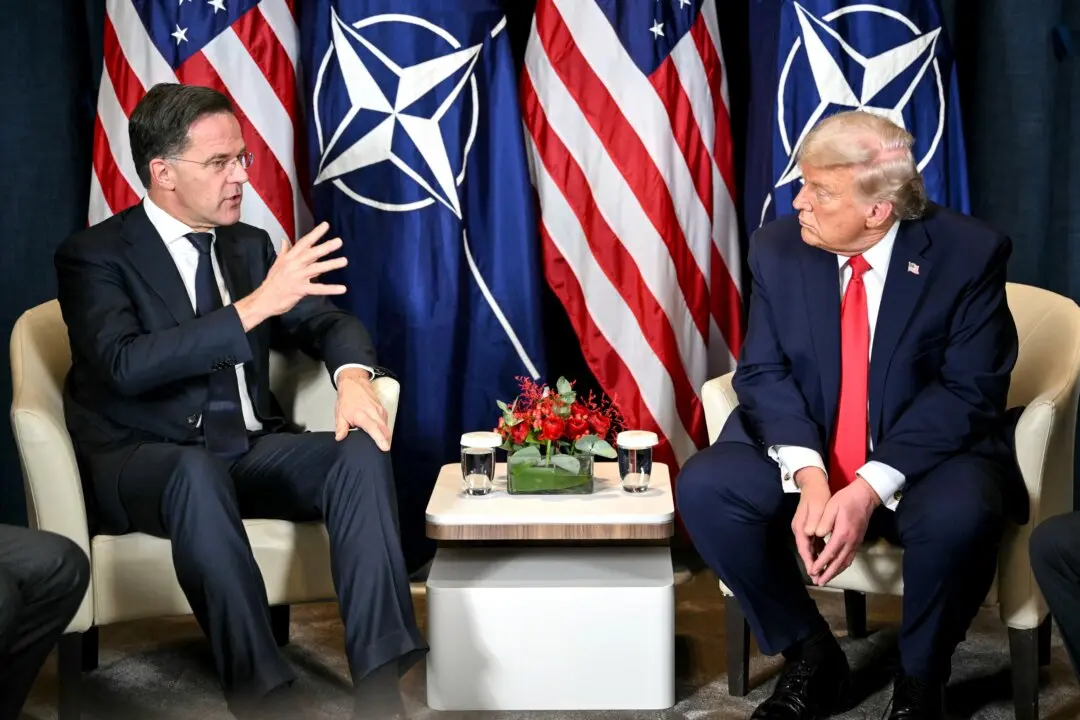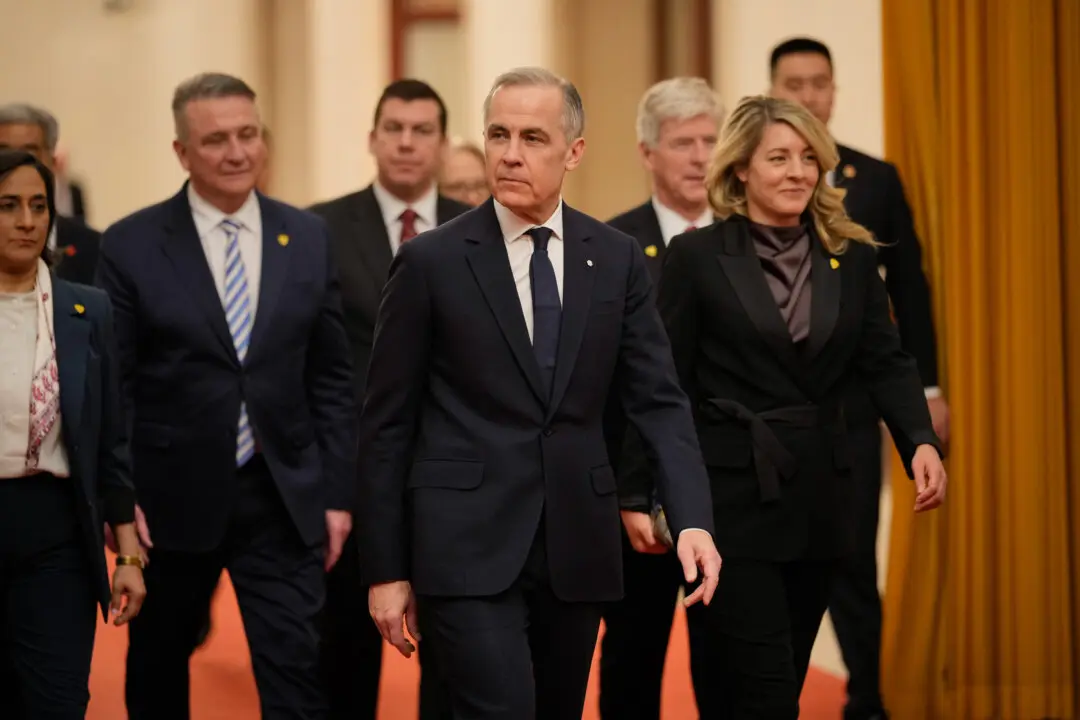The decisive moment is at hand in Ukraine. While other NATO countries have assisted Ukraine, that country wouldn’t have been able to resist successfully without American military and humanitarian assistance that now exceeds $50 billion. It’s only the United States that could assure Ukraine’s durable ability to resist almost any level of assault by Russia. And it’s only the United States that could outbid China for Russia’s goodwill, and could, however disagreeable it would be, compel Ukraine to accept a compromise peace.
The unique position of the United States hasn’t been reflected in the stated war aims of the administration and its Republican supporters, nor sensibly addressed by the rational opponents of the bipartisan U.S. policy that’s been pursued to date.
Those who robotically repeat their objections to the cost of supporting the Ukraine war are simply not thinking it through. $50 billion is approximately three-fifths of 1 percent of the annual budget of the U.S. government. It’s almost all stimulative spending within the United States, which generates income for American individuals and companies and ricochets positively through the economy.
These tiresome and juvenile efforts to imply that the United States can’t sustain that level of support for Ukraine without depriving the American public of essential spending at home, and even more absurdly that the president can’t visit Ukraine without cheating New Palestine, Ohio, or other communities of his presence, adds nothing to the intelligent public discussion that should now be occurring.
If Russia were enabled to fulfill its initial war aims, and reabsorb Ukraine entirely into Russia again, given that it already dominates Belarus and can intimidate several of the other smaller republics of the former USSR, Russian President Vladimir Putin would succeed in substantially reversing the result of the Cold War, which was, lest we forget, the greatest and most bloodless strategic victory in the history of the world.
President Dwight Eisenhower was vindicated: At the cost of maintaining the containment policy around the Soviet Union, it eventually simply disintegrated without firing a shot. It would be a strategic blunder as immense as the bloodless victory in the Cold War was a triumph if we passively allowed the Soviet Union to be reassembled while the independence of the brave Ukrainian people was cruelly strangled before the eyes of the world. What credibility would the West have then?
Shame on those who dispute that aid to Ukraine is a justifiable strategic investment for America and its allies. However, the preservation of Ukraine—and Western assistance in giving it a heroic tradition to build upon, and a comprehensive aid program at the end of the war to help transform the hitherto failed state of Ukraine into a prosperous and competently governed country—absolutely doesn’t require the utter humiliation of Russia. No such goal could be easily achieved and it isn’t desirable. The Western objective must be to apply on both sides the pressure required to preserve a secure Ukraine that can flourish while assuring that Russia gets some modest apparent benefit from its aggressive war, so that we can begin the process of pointing out to the Russians why their national interest is better served cooperating with the West than with China. The West isn’t a threat to Russia, and China is, and the Russians mustn’t be allowed to forget that.
This dual strategic requirement complicates our war aims. The bravura of the president and his principal collaborators including Republican Senate leader Mitch McConnell, that the United States will remain for “as long as it takes, with as much as it takes” gives no hint that the decision-makers in the administration are thinking in any terms other than the total expulsion of Russia from Ukraine including the Crimea, which was in fact part of Russia until 1954. Because Ukraine didn’t exist as an identifiable political entity until the establishment of the Union of Soviet Socialist Republics in 1922 does support the Russian view that it has some legitimate interests in Ukraine, even though, from all accounts the approximately one-sixth Russian-speaking section of the population of Ukraine prefers by a wide margin to be citizens of Ukraine rather than of Russia.
Since Russia is a much larger and stronger country than Ukraine, and despite the fact that Ukraine is a sophisticated arms manufacturer and clearly is fighting bravely for its independence, it will not be possible to expel Russia completely from Ukraine without an immense commitment of American and NATO resources. And the additional cost of doing so would be such a humiliating defeat for Russia that its alliance with China would probably become unlimited accessibility to Siberian resources for resource-poor China, as well as the relocation of masses of overcrowded Chinese to underpopulated Siberia. This would put the West in a rivalry with a China that effectively included a large part of the Russian landmass and unexploited resources, and would make China a much more formidable geopolitical adversary than it has any expectation of becoming otherwise.
It won’t do for President Joe Biden to return to prattling about how he’s defending every square inch of NATO territory, since not one inch of it is at the moment under any threat. Whatever his public position, it’s time for the administration to open parallel negotiations with the Russians and Ukrainians to preserve Ukraine but give Putin a few crumbs for his domestic plausibility, particularly within the corridors of the Kremlin, which has a formidable history of failed officials paying a heavy price for their shortcomings.
The interest of the West is in assisting Ukraine to become a secure and prosperous democracy while maintaining its ability to bring Russia into the West as an honored and cooperating nation, and as the great power that it has been since the time of Peter the Great more than 300 years ago.
Americans would do well to remember the unsatisfactory history of their wars these past 70 years. Gen. Douglas MacArthur’s orders were abruptly changed from the reunification of Korea to the retention of the existing division in 1951. His public insubordination was unacceptable, but he was correct that “In war there is no substitute for victory,” and if he and Eisenhower had been listened to, we wouldn’t have had the disaster in Vietnam. They both said that the Ho Chi Minh Trail had to be cut; it wasn’t, and the non-communist government in Saigon didn’t survive because the Democrats, having propelled the country into the war, didn’t seek a military victory, and undercut Richard Nixon’s promising effort to preserve the government in the south.
By not getting rid of Saddam Hussein in the first Gulf War, we invited the second Gulf War. By trying to transform Iraq into a democracy, we handed much of it to Iran. We couldn’t win in Afghanistan when we allowed the Taliban to winter in Pakistan. The abrupt withdrawal from Iraq brought in ISIS. There was never any sense to the Libyan intervention, nor any discernible plan of action in regard to Syria.
The effect is the United States smashes up these countries and then becomes bored and leaves. This isn’t a process that enhances American prestige in the world. Ukraine is an opportunity to gain a durable and important strategic objective without taking a single casualty. Biden wouldn’t be my choice to sort this out, but he has been handed the ball, and the whole civilized world should hope that he doesn’t fumble it.





